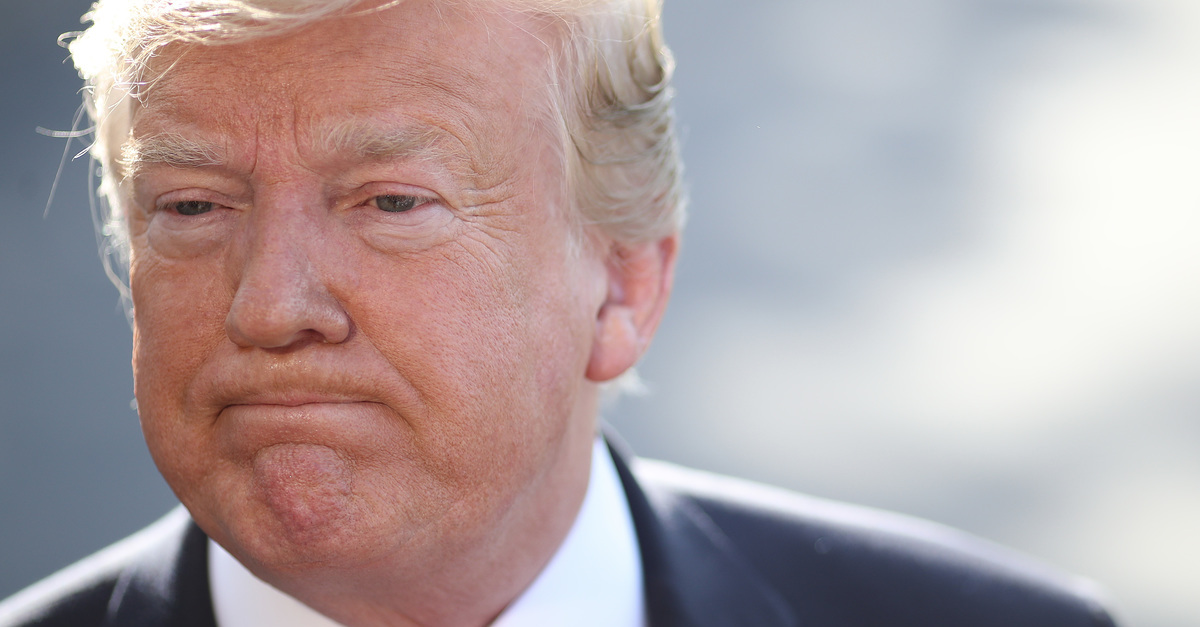
The United States Court of Appeals for the Second Circuit upheld a lower court ruling that President Donald Trump cannot legally block Twitter users from accessing his account because he doesn’t like criticism. From Judge Barrington D. Parker’s systematic dismantling of Trump’s arguments, it does not appear that the case presented a particularly close call.
- Trump argued that his Twitter account is personal, despite basically all of his people admitting that it was an official government account.
The court noted that “the President’s primary argument in his brief is that when he blocked the Individual Plaintiffs, he was exercising control over a private, personal account.”
It went on to note myriad factors that proved the account was anything but “private and personal.” From the page’s registration (to “Donald J. Trump “45th President of the United States of America, Washington 15 D.C.”) to pics of POTUS conducting government business, to many public statements by many Trump staffers admitting that the account was the president’s official means of communication, there were mountains of evidence proving the account to be public. As if all of that wasn’t enough, the National Archives (the government agency that is in charge of official presidential records) already concluded that Trump’s tweets are official government communications.
The court was pretty blunt about its finding:
We conclude that the evidence of the official nature of the Account is overwhelming.
Judge Parker noted that, at oral argument, the government conceded that Trump’s account is not “independent of [Trump’s] presidency,” and instead, only argued that Trump’s blocking users wasn’t state action. In other words, the inconsistencies between POTUS’s argument in his brief and the incontrovertible evidence weren’t strictly necessary to point out. Maybe the Second Circuit did it just for fun.
- Trump claimed blocking users didn’t meaningfully prevent them from “accessing the forum.” The court responded by reminding Trump that people care about more than just him.
The Trump Administration tried to float an argument that blocking users on Twitter doesn’t really matter. According to Trump’s argument, the “only material impact” of blocking is that it prevented people from replying Trump’s tweets. The court explained that blocking a user restricts them not only from communicating directly with the blocked account, but also from seeing and interacting with posts from repliers. “President Trump is only one of thousands of recipients of the messages the Individual Plaintiffs seek to communicate,” said the court. On that basis, the court pronounced Trump’s argument “not well‐grounded in the facts presented to us.”
3. Trump argued that his Twitter account is somehow exempt from First Amendment limitations. The court wasn’t in the mood to give him that special treatment.
Given the context here – a sitting president blocking the speech of those who seek to criticize him – the court was just not buying Trump’s assertion that he’s exempt from the First Amendment. In response to Trump’s argument that blocked users could engage with Trump in some other way, the court said the following: “When the government has discriminated against a speaker based on the speaker’s viewpoint, the ability to engage in other speech does not cure that constitutional shortcoming.”
The court ended by seizing the chance to school the administration on the very purpose of free speech:
The irony in all of this is that we write at a time in the history of this nation when the conduct of our government and its officials is subject to wide‐open, robust debate. This debate encompasses an extraordinarily broad range of ideas and viewpoints and generates a level of passion and intensity the likes of which have rarely been seen. This debate, as uncomfortable and as unpleasant as it frequently may be, is nonetheless a good thing. In resolving this appeal, we remind the litigants and the public that if the First Amendment means anything, it means that the best response to disfavored speech on matters of public concern is more speech, not less.
[image via Win McNamee/Getty Images]